Emotional Challenges of Single Mothers: A Fiqh Perspective
Some of the emotional challenges faced by single mothers are discussed below with an explanation and solution on them from a fiqh perspective. The challenges identified below are findings of a survey conducted on single mothers in Selangor Malaysia.
Due to the decline of extended family, many complications have arisen, and the dire sufferings of single motherhood are one of them. In traditional societies, an extended family consists of parents, uncles, and grandparents. When a woman in an extended family loses her husband, her family will protect her and share her grief. Thus, the traditional social culture maintained the religious guardianship (wilāyah) and alimony (Nafaqah) of Islam. In urbanized life, the extended family tradition has largely broken down. Thus single mothers have lost the economic support and emotional comfort of their families.
In many societies, women are generally blamed for divorce, although this is not always true. Let's say she made a mistake. Is it permissible to deprive her of her right to live in dignity and respect? When her husband dies, it is assumed that the woman herself is responsible for the misfortune. In this regard, women suffer from self-doubt and low confidence.
Two points may be emphasized to lessen her mental suffering. She must realize that single parenthood is not her sin, but rather a test from God, and she must accept God's plan and turn to Him. Our Prophet's mother was also a single parent, and how could the mother of our Prophet be a single parent if being a single parent is a bad sign and a kind of divine retribution?
Another solution is to surround herself with people who believe in her and understand her situation without judgment. Islam encourages divorced women and widows to marry again. Our prophet objected to ‘Uthman b. Maz’un who chose to live in celibacy. Companions said: If he permitted him, we would have had ourselves castrated (Sunan an-Nasa'i 3212). Thus, we emphasize that remarriage is one of the best solutions for single parents to reduce their mental suffering. Single motherhood was common in the prophetic era due to the death of many companions on the battlefield. Mostly they marry again and their sufferings get reduced. Although we have to accept that remarriage is her wilful choice, this is not always a religious obligation, but it should be an initial recommendation.
Ashraf Ali Thanawi said:
‘Sometimes a second marriage is as obligatory for a widow/divorcee as the first marriage. For example, if the widow/divorcee is young and her marriage needs are manifested in her various behaviours as she is afraid of wrongdoing (Fitnah) or if there is severe economic difficulty in her life, a second marriage is obligatory in these situations. Even if the widow/divorcee does not want to marry in such a situation, her marriage must be arranged’ (Marriage in Islam, 64-65).
Generally, divorced women/widows can refrain from remarrying if they are afraid of marriage or losing their children. In such cases, it is perfectly acceptable not to marry again. We as a society should accept single mothers and help them as they are because, from the Islamic perspective, being a single mother is not an act of sin. When Umm Hani became a widow, the prophet proposed to her, but she did not accept it and said I am now an old woman and I have a family, I cannot marry again (Sahih Muslim, 2527). Single mothers who do not prefer remarriage should reach out to others who believe in them and understand their situation. Extended families will never be the same again, but we can reimagine Islamic family values in new forms, including local, mosque-based, and online communities. Islam stresses the importance of maintaining family ties (ṣilat al-raḥim). It includes blood ties, as well as social relationships.
The Messenger of Allahﷺ said:
"Anyone who is pleased that his sustenance is expanded and his age extended should do kindness to his near relatives" (Sunan Abi Dawud, 1693).
It can be said based on this hadith, that family and social ties can solve many mental and social problems and thus enhance our sustenance and increase our well-being.
Single motherhood causes many complications. The emotional difficulties are particularly noteworthy. In our survey, many participants mentioned emotional challenges, although most members said they could maintain emotional balance. As the survey showed, the presence of psychological help from society reduces complications in personal and family life. In the interview, one woman attempts to articulate the complexities as she puts it:
"Single motherhood is hard, people around her look down on her, there is no help from family. Over time, it certainly leads to low confidence, but looking back at my child's face makes me forget everything and ready to take on all the hardships.’’
Sometimes, when somebody becomes a single mother, they will feel guilty because maybe they are the reason for the divorce. And the society in which we live always blames women as the cause of the problem. Even though that’s not true, it is natural to feel guilty when something terrible occurs in our lives, but this feeling should not be so strong that it interferes with our daily lives. For example, if they always blame themselves, they will overthink what society says about them until they cannot continue their life as usual. The sense of guilt also can lead to mental illness like depression. So, they have to deal with their guilt well because it is alright to feel guilty in our life, but not too extreme.
First of all, as Muslims, we need to accept qaḍā’ (the divine decree) and qadar (the divine measurement) in order to protect the dīn. We no longer blame ourselves because we know Allah is the best planner and there will be hikmah behind this. Allah said in Quran in Surah Al-Baqarah verse 216 which means “But perhaps you hate a thing that it is good for you; perhaps you love a thing that is bad for you. And Allah Knows, while you know not”.
In addition, to protect the intellectual, they must engage with a new society than before because they may feel terrible because of the prejudice and stigma. So, when they change culture, they will be more rational and stable. Others also have engaged in self-reflection. Because this is one way to calm ourselves and get closer to Allah.
Another issue is the protection of the children. As single mothers, they have to avoid this problem to prevent it from causing another issue, which is child neglect. When they are preoccupied with themselves, they will neglect their responsibilities toward their children. Nobody cares about their children, for example, because they are blamed for themselves and feel guilty about what happened. So, this will cause another problem for them and their children.
And also, as Muslims, we should always pray to Allah seeking His guidance. Rasulullah said,
"قُلِ اللَّهُمَّ اهْدِنِي وَسَدِّدْنِي وَاذْكُرْ بِالْهُدَى هِدَايَتَكَ الطَّرِيقَ وَالسَّدَادِ سَدَادَ السَّهْمِ"
" O Allah, direct me to the right path and make me adhere to the straight path," and when you make a mention of right guidance, keep in mind the right path and when you consider of the straight (path), keep in mind the straightness of the arrow. (Sahih Muslim).
Based on the survey about single mothers, it is found that our government or NGOs should focus on supporting single mothers with financial help, as many of them are not working and they are needy. Loneliness is not a big issue among single mothers, and they can control their mental health after becoming widows, even though one of them said it was hard at first because she had to do all the things alone, but she chose to accept what happened and move on. Other than that, one problem that they all have to face is that they do not have enough time with their children at home. So, they cannot spend their time teaching or playing with the kids. This is a big issue because parents should play their role well in the family so their children do not feel abandoned and they cannot get enough affection and attention from their parents.
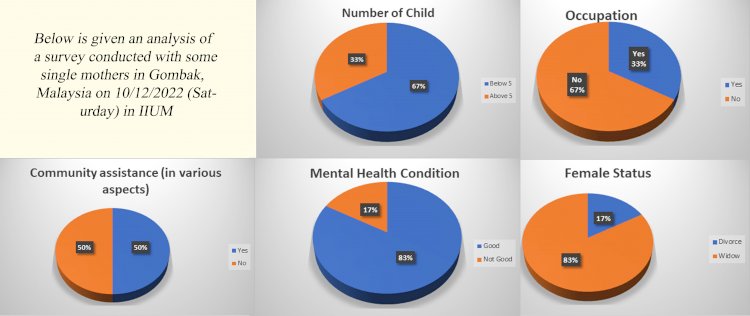
Findings of the survey:
- Many of them can manage their mental health well even though not have any help from others.
- They admit that raising children without the love of a father (father figure) is very difficult, and they often do not listen to advice from mothers.
- There is no due care and regard towards single mothers from government agencies and non-governmental organisations.
- Employment opportunities for single mothers are very important and without which their life will be miserable.
Recommendations:
- The Ministry of Women's Development needs to introduce policies that help single mothers.
- Non-governmental organizations should also focus on supporting single mothers and reducing their burden.
3. Need consideration for single mothers in the job sector as part of fulfilling communal obligation to them.
About authors:
Abdul Hannan Bin Mohamad Ibrahim, Iftekhar Jamil Fuad, Muhammad Bin Rosli are degree students, Department of Fiqh and Usul al-Fiqh, International Islamic University Malaysia
Disclaimer
The views expressed in this article are the author’s own and do not necessarily mirror Islamonweb’s editorial stance.

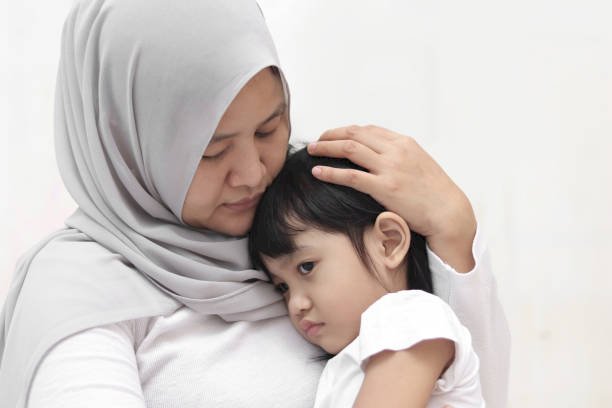


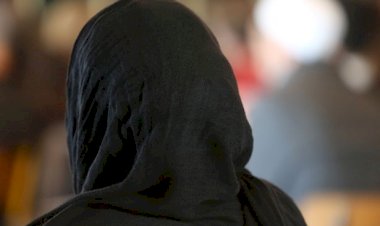
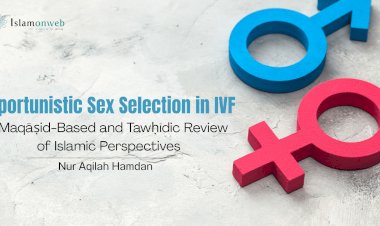

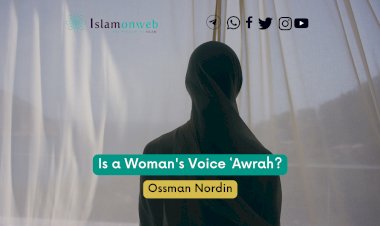
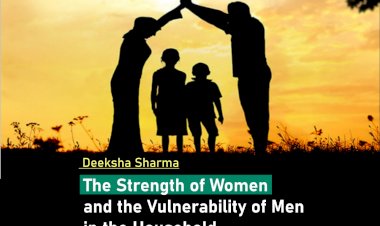
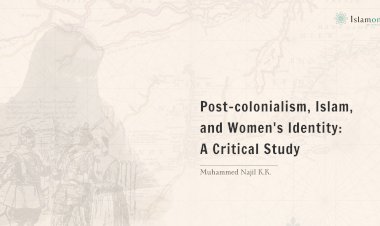














Leave A Comment